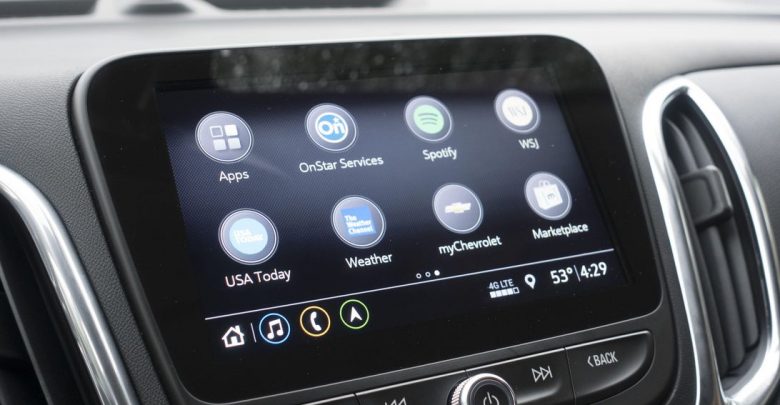Electronics
Your automotive’s knowledge privateness comes into query in Georgia Supreme Courtroom case – CNET

Your automotive’s black field can log your location historical past, your calls and your music. The ACLU argues that police will want a warrant for that data.
Emme Corridor/Roadshow
Your automotive is aware of much more about you than you assume. It gathers all types of data, from the place you have been to whom you have talked to and what music you want, and police are in a position to get all of that data with out a warrant.
A Georgia Supreme Courtroom case might change that. The American Civil Liberties Union argued Wednesday that police should acquire a warrant to entry knowledge collected by automobiles.
Police have been in a position to conduct digital searches in automobiles with out a warrant due to a US Supreme Courtroom choice in 1925, which established that police want solely possible trigger to go looking automobiles.
As expertise’s attain has expanded and adjusted the scope of how a lot private data will get collected about an individual, legal guidelines have lagged behind, leaving privateness rights in limbo for years. On the US borders, patrol brokers are nonetheless in a position to search folks’s units with out a warrant, and it was solely in 2014 when the US Supreme Courtroom dominated that police must get warrants to go looking our telephones.
Final June, the US Supreme Courtroom additionally dominated that police want a warrant to get cellphone location knowledge, however there are nonetheless privateness challenges as extra instances tackle different methods expertise can accumulate data.
The Georgia case might be one other milestone in how the authorized system offers with expertise.
“The query of whether or not a warrant is required for roadside downloads is a extremely vital query,” a justice of the Georgia Supreme Courtroom mentioned throughout arguments on Wednesday.
The pc in a automobile’s infotainment system collects knowledge together with your location historical past, your cellphone contacts, songs you have listened to, video from contained in the automotive and textual content messages. That is not together with the information collected within the automotive’s black field — which is put in in 96% of automobiles.
Typically referred to as an occasion knowledge recorder, the automotive’s black field collects knowledge on data like automobile velocity, seat belt use, braking, acceleration and extra.
“That is one more case that calls on a court docket to determine whether or not older doctrines from earlier than the digital age must be prolonged to new sorts of intrusions on folks’s private knowledge,” ACLU legal professional Nathan Freed Wessler mentioned forward of the trial.
The case
The Mobley v. State case in Georgia stems from a deadly automotive crash in 2014. Police charged Victor Mobley with reckless driving, alleging that he drove at 97 miles per hour in a 45-mph velocity restrict zone.
He was discovered responsible in 2017 however appealed the conviction, arguing that police wanted a search warrant to get the information from the automotive’s black field as a result of he “had a subjective expectation of privateness within the knowledge,” in line with court docket paperwork.
Automobiles at present aren’t simply steel bins on wheels, they’re roving computer systems that include a surprising array of data.
ACLU legal professional Nathan Freed Wessler
Georgia’s prosecutors mentioned that downloading black field knowledge at automotive crashes was a typical follow, particularly when it entails critical accidents or demise. Regulation enforcement can acquire that knowledge by eradicating the black field from the automotive and plugging it into their computer systems with a crash knowledge restoration equipment.
Police informed the court docket that they did not acquire a warrant as a result of “we had the sources accessible on the time … to go forward and simply collect all the information that we might whereas we’re on-scene.”
This is not the primary time this problem has gone to trial, however it’s the primary time a state supreme court docket is trying on the argument. A court docket case in Florida in 2017 dominated that the Fourth Modification protects folks’s privateness in relation to their automotive’s black bins, whereas a case in New York and California dominated the other.
Knowledge-driven
The black field knowledge in automobiles does not simply accumulate data to be used in crash analyses, nonetheless. As these recorders are linked to a automotive’s central laptop system, it collects all the information that comes via, together with private data that Wessler argues is roofed by Fourth Modification safeguards in opposition to unreasonable searches and seizures.
The information saved in automobiles is delicate and never encrypted, and until courts set up authorized protections, police can entry it with out a warrant, he added. And as automotive expertise develops, it might embrace extra data like video feeds and exact location historical past.
“All of that’s now intermingled, and with out a robust assertion from this court docket that this sort of knowledge is totally different, we will likely be vulnerable to unconstitutional searches,” Wessler mentioned throughout arguments on Wednesday.
A bunch of 20 carmakers pledged to privateness ideas that might give automotive homeowners a approach to handle the information their automobiles accumulate on them and promised to acquire consent earlier than utilizing location and biometric knowledge for advertising.
The trial that opened Wednesday might determine how simply police can acquire that knowledge.
“The true problem is that automobiles at present aren’t simply steel bins on wheels, they’re roving computer systems that include a surprising array of data that may chart an in depth image of our personal lives,” Wessler mentioned.

Watch this:
Checking the tech within the 2019 Honda Civic Sedan
2:01
Initially revealed on June 19 at 5:00 a.m. PT.
Up to date at eight:07 a.m. PT: To incorporate particulars from arguments from the Georgia Supreme Courtroom on Wednesday.

